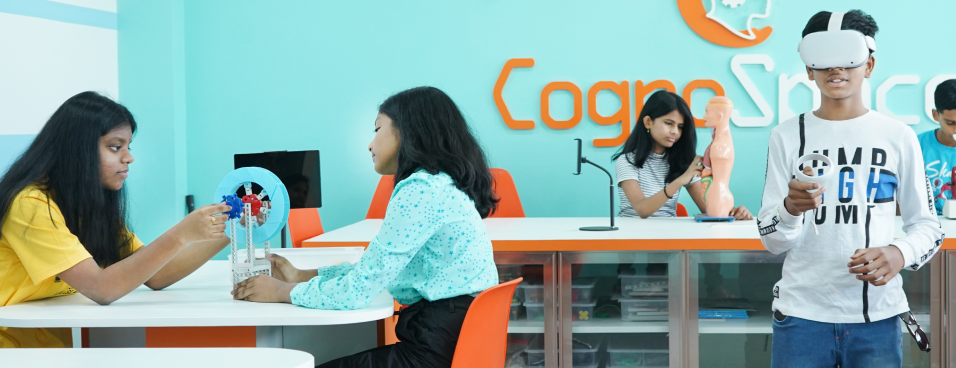NEP 2020 and Its Emphasis
on Experiential Learning

Education is the cornerstone of societal progress, and its evolution is vital for shaping the future. In 2020, India took a significant leap forward in transforming its educational landscape with the introduction of the National Education Policy (NEP) 2020. This groundbreaking policy overhaul aims to revolutionize the education system by embracing experiential learning as a pivotal element.
Experiential learning is a pedagogical approach that immerses learners in real-world experiences, fostering critical thinking, problem-solving skills, and holistic understanding. The NEP 2020 recognizes the limitations of rote memorization and theoretical knowledge, advocating for a shift towards practical, hands-on learning experiences.
The NEP champions a pedagogical evolution towards experiential learning, encompassing key attributes:
Learning How to Learn:
Students are encouraged to explore methodologies that enable them to absorb and synthesize information effectively. This approach cultivates self-directed learners capable of adapting to novel and dynamic fields.
Critical Thinking and Problem-Solving:
By fostering an environment that encourages critical analysis and problem-solving, students develop skills that are indispensable in real-world scenarios.
Creativity and Multidisciplinarity:
The NEP acknowledges the importance of nurturing creativity and integrating multiple disciplines. This interdisciplinary approach sparks innovation and the ability to connect seemingly disparate ideas.
Innovation, Adaptability, and Absorption of New Material:
Embracing innovation and adaptability, students are equipped to absorb new knowledge and adapt to rapidly changing fields seamlessly.
The NEP envisions an educational environment that is experiential, holistic, integrated, inquiry-driven, discovery-oriented, learner-centered, discussion-based, flexible, and, of course, enjoyable. This multifaceted approach provides a framework where students are active participants in their learning journey rather than passive recipients of information. For school administrators and management, adopting these principles can unlock a multitude of benefits. It offers an opportunity to revitalize teaching methodologies, enhance student engagement, and foster a culture of continuous improvement.
Implementing experiential learning methodologies might involve redesigning curriculum structures, encouraging project-based learning, facilitating hands-on experiences, fostering collaborative activities, and leveraging technology as an enabler. As an example, the advent of AI demands understanding this technology imperative. CognoSpace advocates for new curricula bolstered by cutting-edge tools to enable students to comprehend and engage with AI. Schools must adapt and leverage technology to make learning engaging, surmount challenges, and expose students to the latest methodologies.
In conclusion, the NEP 2020's emphasis on experiential learning isn’t just a policy change; it's a paradigm shift that holds the key to shaping a generation of learners equipped to conquer the challenges of tomorrow. CognoSpace stands ready to collaborate with schools, enabling them to create immersive, technology-driven learning environments aligned with the NEP's vision. The question isn’t merely “Why adopt experiential learning?” but rather “Can we afford not to?”
